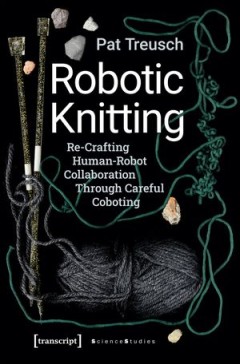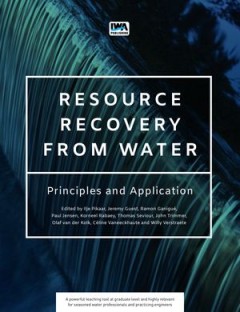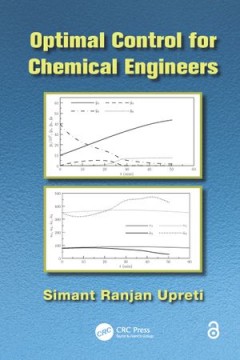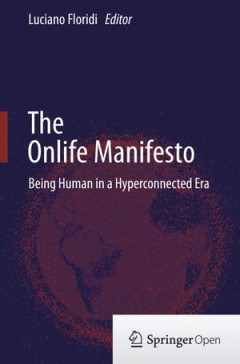Filter by

World Beats: Beat Generation Writing and the Worlding of U.S. Literature, Re-…
This fascinating book explores Beat Generation writing from a transnational perspective, using the concept of worlding to place Beat literature in conversation with a far-reaching network of cultural and political formations. Countering the charge that the Beats abroad were at best naïve tourists seeking exoticism for exoticism's sake, World Beats finds that these writers propelled a highly…
- Edition
- -
- ISBN/ISSN
- 9781611689297
- Collation
- -
- Series Title
- -
- Call Number
- -

Working-Class Literature(s)
"The aim of this collection is to make possible the forging of a more robust, politically useful, and theoretically elaborate understanding of working-class literature(s). These essays map a substantial terrain: the history of working-class literature(s) in Russia/The Soviet Union, The USA, Finland, Sweden, The UK, and Mexico. Together they give a complex and comparative – albeit far from com…
- Edition
- -
- ISBN/ISSN
- 9789176350515
- Collation
- -
- Series Title
- -
- Call Number
- -

Women's Writing in Contemporary France: New writers, new literatures in the 1…
The 1990s witnessed a veritable explosion in women's writing in France, with a particularly exciting new generation of writers coming to the fore, names like Christine Angot, Marie Darrieussecq and Régine Detambel. Other authors such as Paule Constant, Sylvie Germain, Marie Redonnet and Leïla Sebbar, who had begun publishing in the 1980s, claimed their mainstream status in the 1990s with new …
- Edition
- -
- ISBN/ISSN
- 9781526137999
- Collation
- -
- Series Title
- -
- Call Number
- -

Women’s Writing from Wales before 1914
This essay collection rediscovers and reassesses a host of still little-known, pre-1914, Welsh women writers.In the last few decades considerable advances have been made towards rediscovering, contextualising, and analysing women’s writing from Wales. The combined influences of the post-1960s women’s movement, the 1990s Welsh devolution successes, and the development of the ‘Four Nations�…
- Edition
- -
- ISBN/ISSN
- 9781000651249
- Collation
- -
- Series Title
- -
- Call Number
- -

Women's Literary Networks and Romanticism: A Tribe of Authoresses
The eighteenth century witnessed the rapid expansion of social, political, religious and literary networks in Great Britain. Increased availability of and access to print combined with the ease with which individuals could correspond across distance ensured that it was easier than ever before for writers to enter into the marketplace of ideas. However, we still lack a complex understanding of h…
- Edition
- -
- ISBN/ISSN
- 9781786940605
- Collation
- -
- Series Title
- -
- Call Number
- -

Women Writing Portuguese Colonialism in Africa
This book represents the first attempt to query the contribution of women as cultural agents to the colonization, the anti-colonial opposition and the decolonization of territories ruled by Portugal in the African continent between the turn of the twentieth century and the early twenty-first. In contrast to the longstanding scholarship on the subject as regards other European empires, the entan…
- Edition
- -
- ISBN/ISSN
- 9781789622317
- Collation
- -
- Series Title
- -
- Call Number
- -

William Warner's Syrinx: or, A Sevenfold History
William Warners Syrinx, or a Sevenfold History, may be the first English novel. Unlike others of the time, though, Warner wrote a realistic novel whose ancestors include the adventure stories of Alexandrine romance, and focus not on the tales of an aristocratic class but on the lives of middle-class individuals. Wallace A. Bacon’s critical edition brings Warner’s important novel –with its…
- Edition
- -
- ISBN/ISSN
- 9780810138230
- Collation
- -
- Series Title
- -
- Call Number
- -

Whose History? Engaging History Students through Historical Fiction
Whose History? aims to illustrate how historical novels and their related genres may be used as an engaging teacher/learning strategy for student teachers in pre-service teacher education courses. It does not argue all teaching of History curriculum in pre-service units should be based on the use of historical novels as a stimulus, nor does it argue for a particular percentage of the use of his…
- Edition
- -
- ISBN/ISSN
- 9781922064509
- Collation
- -
- Series Title
- -
- Call Number
- -

White Field, Black Seeds: Nordic Literacy Practices in The Long Nineteenth Ce…
"White field, black seeds – who can sow? Although the riddle from which this these words are taken comes from oral tradition, it refers to the ability to write, a skill which in most Nordic countries was not regarded as necessary for everyone. And yet a significant number of ordinary people with no access to formal schooling took up the pen and produced a variety of highly interesting texts: …
- Edition
- -
- ISBN/ISSN
- 9789522224446
- Collation
- -
- Series Title
- -
- Call Number
- -

When poetry comes to its senses:* inscribed Roman verse and the human sensori…
Chapter 7 of Dynamic Epigraphy: New Approaches to Inscriptions This volume, with origins in a panel at the 2018 Celtic Conference in Classics, presents creative new approaches to epigraphic material, in an attempt to 'shake up' how we deal with inscriptions. Broad themes include the embodied experience of epigraphy, the unique capacities of epigraphic language as a genre, the visuality of in…
- Edition
- -
- ISBN/ISSN
- 9781789257915
- Collation
- -
- Series Title
- -
- Call Number
- -
 Computer Science, Information & General Works
Computer Science, Information & General Works  Philosophy & Psychology
Philosophy & Psychology  Religion
Religion  Social Sciences
Social Sciences  Language
Language  Pure Science
Pure Science  Applied Sciences
Applied Sciences  Art & Recreation
Art & Recreation  Literature
Literature  History & Geography
History & Geography